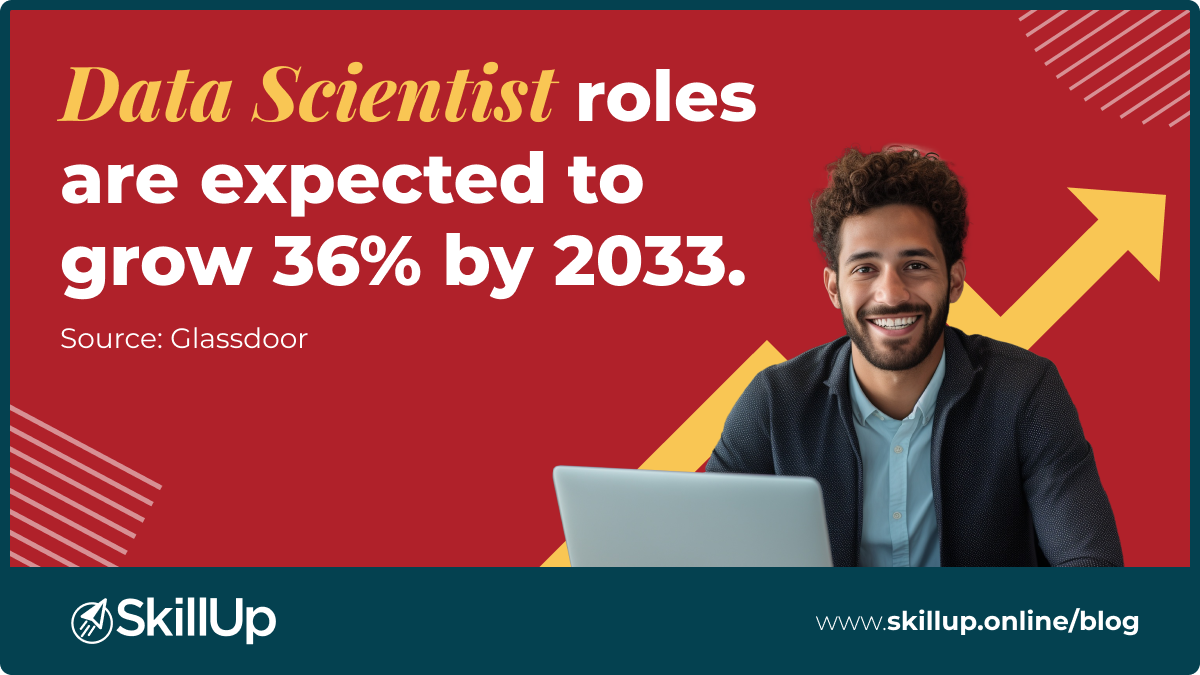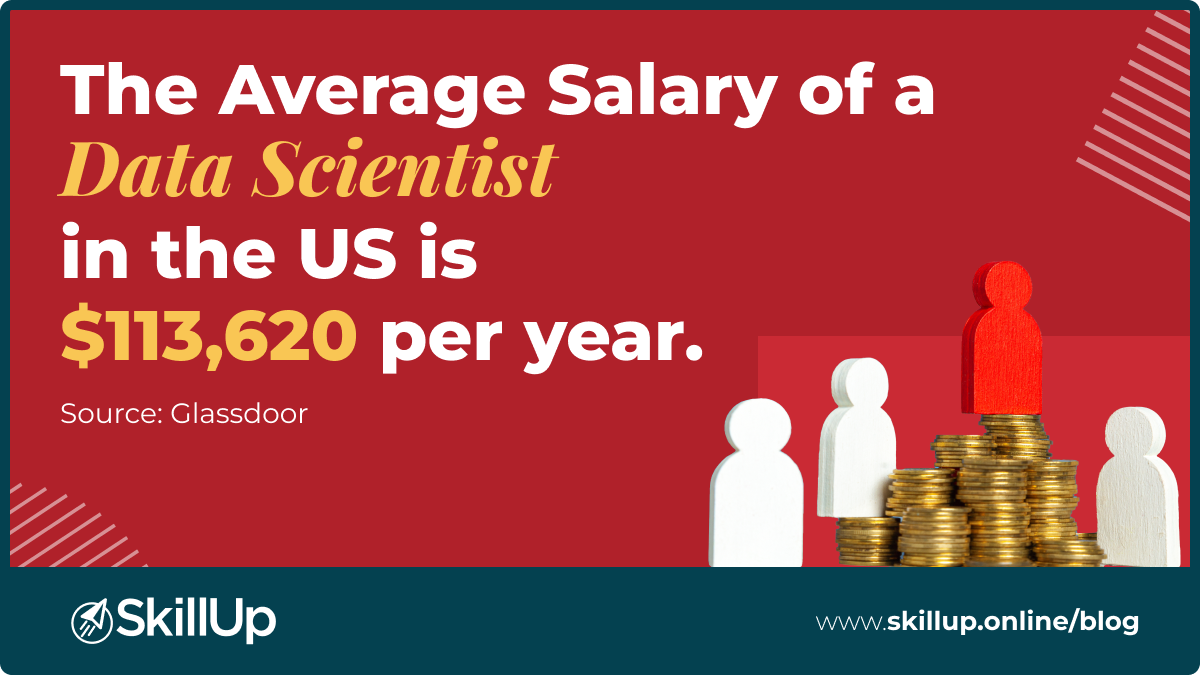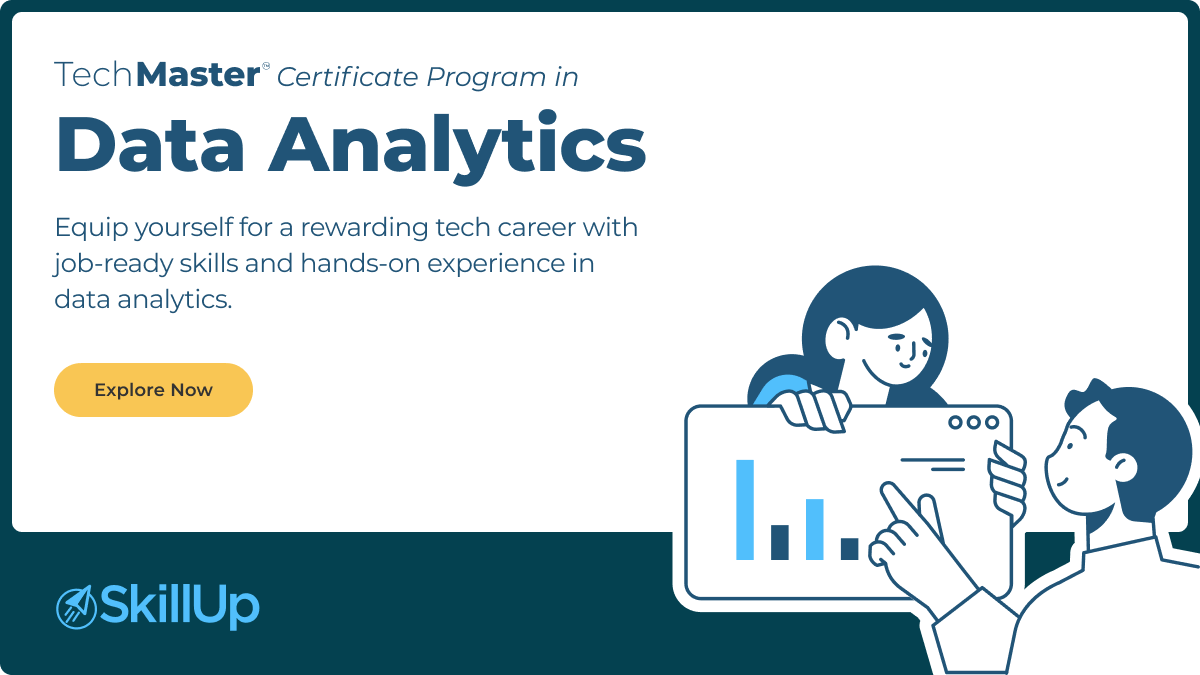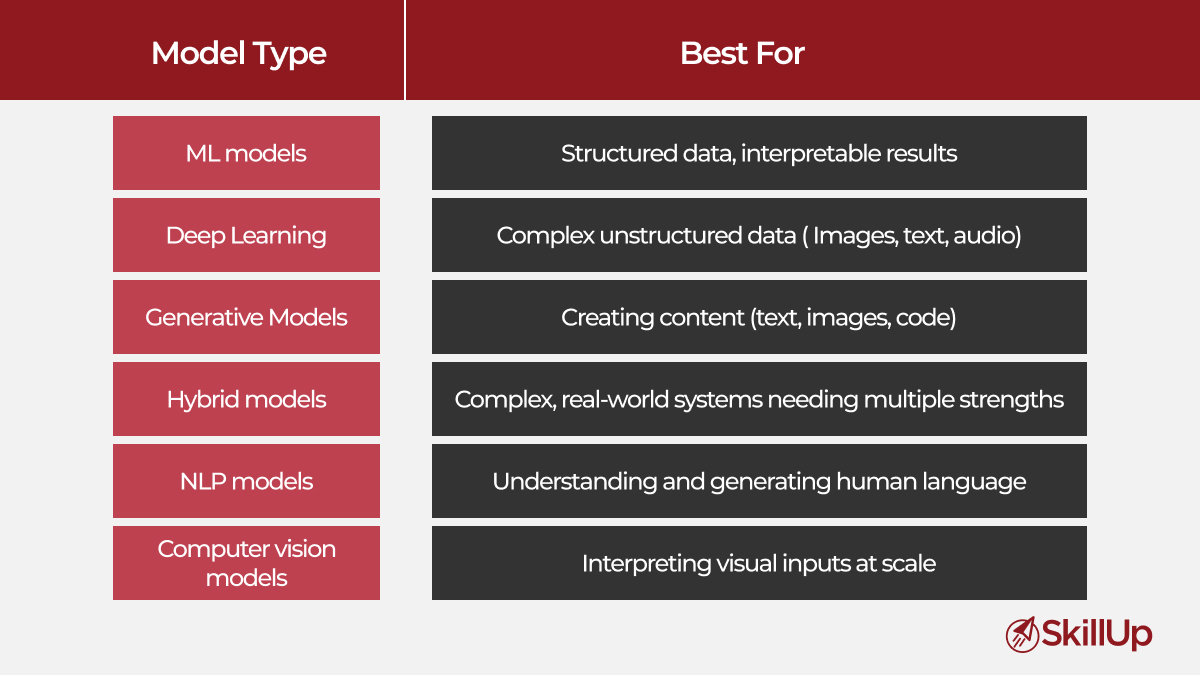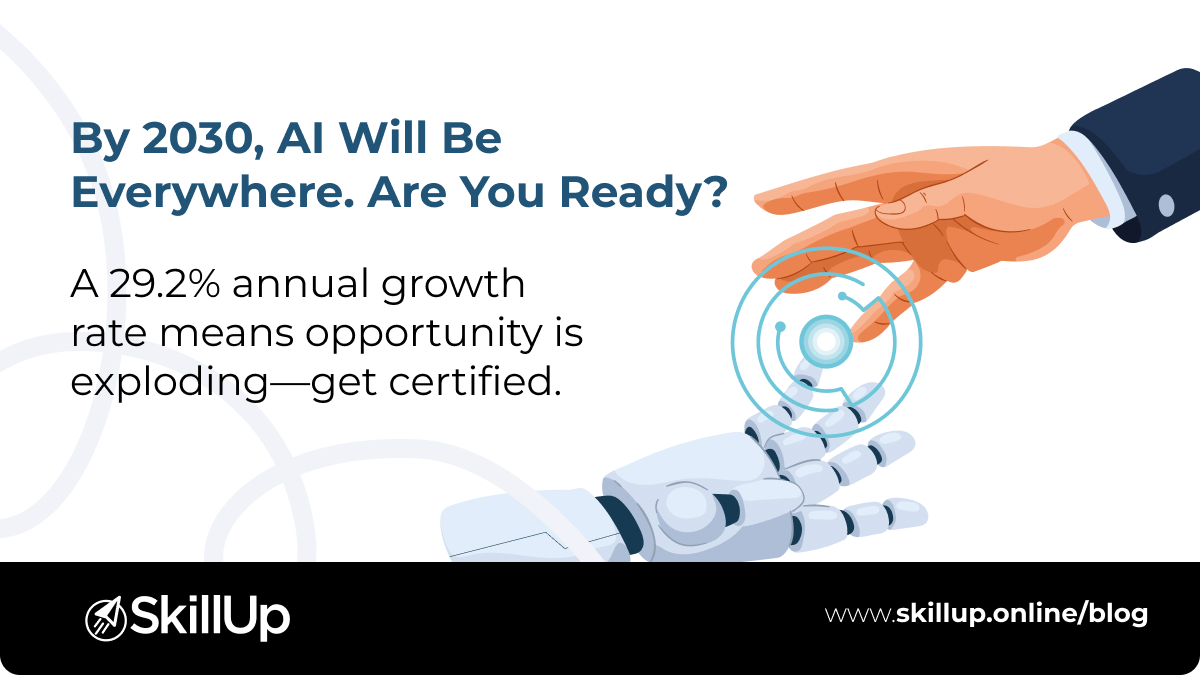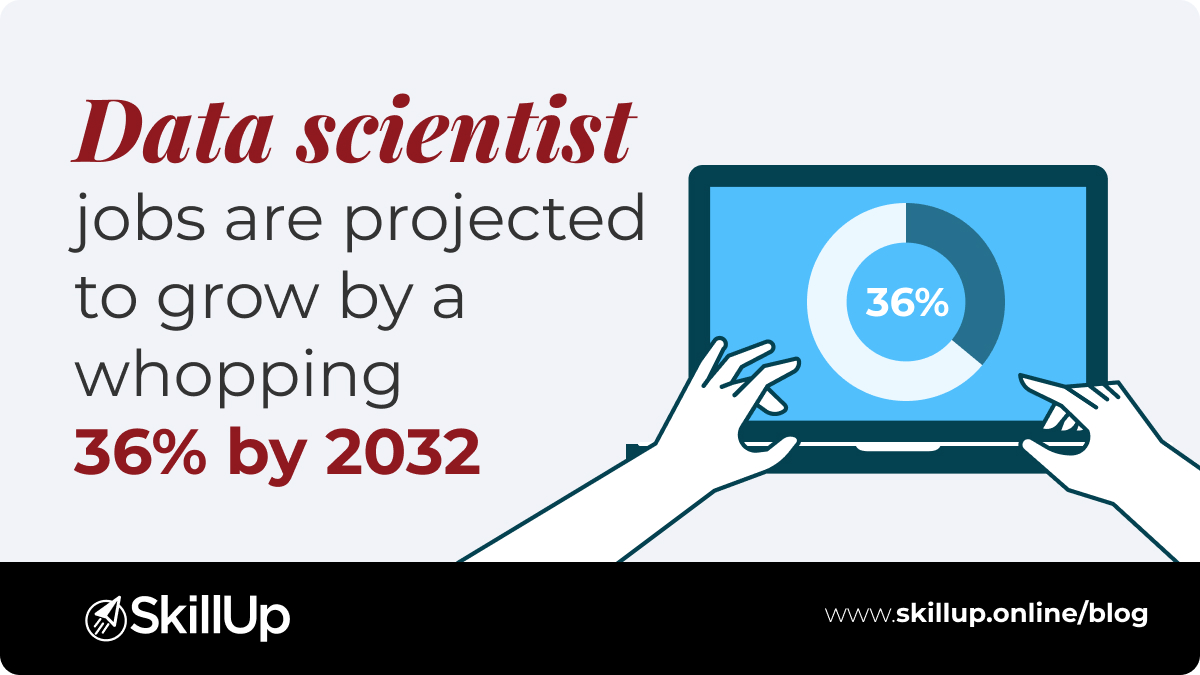Data scientist roles are expected to grow by 36% by 2033 nearly seven times faster than the average for all careers. That’s a huge signal about where the job market is headed. Across industries like healthcare, finance, logistics, and retail, companies are using data to drive smarter decisions and stay ahead.
So, if you’ve been wondering, “Is data science worth it?”, the short answer is yes and the growing demand is only one part of the story.
The Growth Outlook: Jobs, Demand, and Salaries
When it comes to job outlook, the numbers tell a powerful story.
- Job Growth: The demand for data scientists is projected to rise by 36%, putting it among the fastest growing across all sectors.
- Salary Benchmarks: The average salary for data scientists in the U.S. is reported at $1,13,620.
- Industry Spread: Beyond tech giants, fields like healthcare, logistics, finance, and government are investing heavily in data-driven roles.
If you’re looking to build a career that pays well and offers flexibility both geographically and industry-wise data science puts you in a strong position.
What Makes Data Science a Valuable Career
One of the most exciting things about data science is its universal relevance. Across industries, data professionals are solving real-world problems and making a measurable impact:
- Healthcare: Building predictive models to catch diseases earlier and personalize treatments.
- Retail: Powering recommendation engines and streamlining supply chains.
- Finance: Detecting fraud faster and advising smarter investment decisions.
- Supply Chain: Anticipating product demands and optimizing delivery routes.
There’s also a lot of flexibility when it comes to your data science career paths. You might start out as a data analyst, then move into machine learning, or branch off into artificial intelligence research. With a solid foundation, you can shape your own future. If you’re curious about different roles, SkillUp’s TechMaster Certificate Program in Data Analytics maps these career paths out clearly while building practical skills along the way.
The Skills That Make You Stand Out
Good data scientists aren’t just technical experts they’re problem-solvers, storytellers, and collaborators. Here’s what you’ll need to really stand out:
Technical Skills:
- Programming: Strong in Python and SQL. Knowledge of R or JavaScript can also give you an edge.
- Statistics and ML: Understanding the math behind algorithms like clustering, regression, and decision trees.
- Cloud Platforms: Experience with AWS, Google Cloud, or Azure to manage and deploy models at scale.
- Visualization: Knowing how to present findings visually using Tableau, Power BI, or Python libraries like Seaborn.
Soft Skills:
- Problem-solving: Seeing patterns and possibilities others might miss.
- Communication: Breaking down complex analysis for business teams.
- Teamwork: Collaborating with marketing, product, and engineering teams to turn insights into action.
If you’re curious about which skills employers value most in analytics and data roles, SkillUp’s blog on the Top 10 Skills to Become a Data Analyst offers a deeper dive into both foundational and emerging capabilities that can strengthen your profile.
If you’re looking for a place to learn these skills systematically, SkillUp’s TechMaster Data Analytics Certification Online offers a hands-on curriculum designed around real-world projects—not just theory.
How to Break In Even Without a Traditional Degree
Breaking into data science doesn’t require a computer science PhD. Many successful data scientists come from fields like economics, psychology, or even journalism. Here’s how to get a job in data science, even if you’re coming from a non-technical background:
- Certifications and Professional Courses: Build your foundation through credible online programs. Explore SkillUp’s data analytics course library to find options that suit your learning style, career goals, and experience level.
- Portfolio Building: Create tangible projects—predict housing prices, classify customer reviews, or visualize COVID-19 trends.
- Short-Term Bootcamps: Accelerate your learning curve through focused, immersive experiences.
- Self-Learning and Practice: Use open datasets from platforms like Kaggle to sharpen your skills.
To dive deeper into how to land your first role, SkillUp’s blog “Unlocking Entry-Level Data Science Jobs: A Comprehensive Guide” provides actionable steps on building a career without a traditional degree.
Making the Career Decision: Is It Right for You?
Before you dive into data science, it’s important to reflect. Do you enjoy solving open-ended problems? Are you curious about uncovering hidden patterns in information? Can you communicate complex ideas in a simple, clear way? Are you excited about continuous learning as technologies evolve? If you answered “yes” to most of these, data science could offer not just a well-paying career, but one that challenges and rewards you intellectually every day.
If you’re ready to step into this space, the right skills and mindset can open doors you might not have imagined. You can start by exploring SkillUp’s full catalog of Data Analytics Courses, designed to help you build real-world capabilities whether you’re starting fresh or making a bold career pivot.
SkillUp Online
